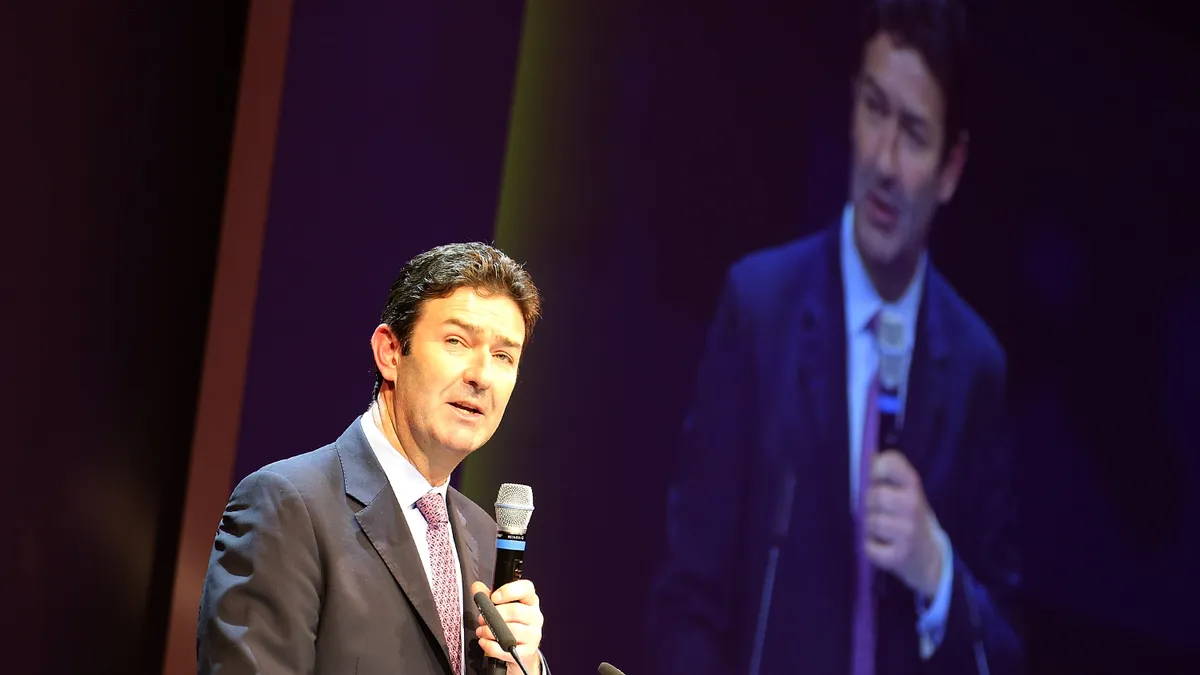Dive Brief:
-
Former McDonald’s CEO Stephen Easterbrook, who was let go in 2019 for having a consensual relationship with an employee in violation of company policy, settled with the Securities and Exchange Commission this week for lying during the company’s investigation of the matter about whether he had had additional relationships with employees.
-
"By allegedly concealing the extent of his misconduct … Easterbrook broke that trust with — and ultimately misled — shareholders," Gurbir Grewal, the SEC’s director of enforcement, said in a statement.
- The company had agreed to dismiss the CEO — widely credited at the time for leading a growth surge and modernizing operations — without cause, entitling him to keep his severance package, worth tens of millions of dollars at the time.
Dive Insight:
During the company’s investigation of the matter, Easterbrook said there were no other relationships with employees when he was asked about it.
In giving that answer, the SEC said, he knew, or should have known, that his misrepresentation would influence what the company disclosed to investors and what it said publicly.
As a result, in both a letter to employees, which received widespread media coverage, and a press release attached to the company’s Form 8-K filing, the cause of dismissal was said to be “limited to a single consensual relationship with another McDonald’s employee,” the SEC said.
The company in 2020 sued Easterbrook to claw back the compensation in his severance package after it learned about his misrepresentation through an anonymous complaint.
The two parties settled the lawsuit in late 2021, with Easterbrook agreeing to return $105 million in equity gains.
When granted in 2019, CNBC reported, Easterbrook’s severance package was valued at around $42 million. But by late 2021, the stock had climbed 37% to more than $264 per share, more than doubling the value of his holdings.
“I failed at times to uphold McDonald’s values and fulfill certain of my responsibilities as a leader of the company,” Easterbrook said in a statement at the time.
In its settlement with him, the SEC said, Easterbrook agreed to a five-year bar on acting as an officer of a publicly traded company and to pay a $400,000 civil penalty, without admitting or denying the findings.
The SEC credited McDonald’s for its cooperation. Although it had failed to disclose to investors that it exercised discretionary authority to fire Easterbrook without cause, entitling him to keep his severance package that otherwise he would have had to forfeit, it acted quickly to help the agency with its investigation and also sought to protect shareholders by clawing back the ex-CEO’s gains.
“McDonald’s acknowledges that the Commission is not imposing a civil penalty based upon its cooperation,” the SEC said.











